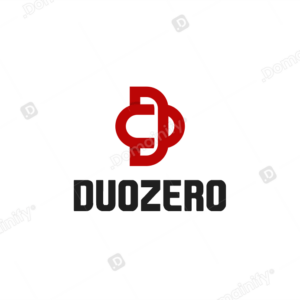What is domain authority? How can I boost my website’s Domain Authority? Can I rank number one on Google with my website? These are the most common questions website owners ask.
This article will explain all you need to know about domain authority. Also, we will talk about how to calculate and increase domain authority.
What Is Domain Authority?

Domain authority is an indicator that determines a website’s rank on search engines. Moz develops it and awards a score ranging from 1 to 100. So, if your webpage has a good score, it has a better possibility of ranking well in search engines’ results (SERPs).
One way to define domain authority is that it reflects your site’s relevance in your industry or a specific issue. Also, you may check the potency or validity of your domain rankings.
However, there is little distinction between domain authority and page authority. Domain authority shows the ranking strength of your entire domain (and sub-domains). In contrast, page authority considers the ability of individual pages to rank.
What domain authority score should you aim for?
What is A Good Domain Authority Score?
Calculating a good domain authority involves several variables. But, websites such as Google, Apple, and Microsoft will have a high DA (between 95 and 100).
In contrast, if your website is brand new, your DA will be low (possibly between 10 to 20).
Also, note that it is easy to boost your site’s domain authority score between 20 and 30 than between 70 and 80. Consider the following ranges when determining the score;
Below 30 (poor)
30 to 40 (below average)
40 to 50 (average)
50 to 60 (good)
60 to 70 (very good)
Above 80 (excellent)
In addition, it is crucial to note that DA aids in predicting how well your website will fare in search results. Thus, it is preferable to use it to compare your website to others in SERPs before increasing your DA’s ranks.
How To Calculate Domain Authority
Knowing your domain authority is essential for creating or improving your marketing strategy. How can you calculate your domain authority, though?
Moz calculates the domain authority score by considering several signals (40 in all). Some of these include;
The amount of inbound and internal links on your website
The level of relevance and quality of external links
The reliability of the content on your site
Social Indicators (the engagements on your social media posts)
Overall SEO effectiveness of your website
How To Boost Domain Authority
Although we’ve addressed a lot, we must explore one more crucial subject. How to Boost Domain Authority! This is what we’ll go through in this part. Follow the three-step process outlined below to get high domain authority.
Improve Your Off-Page SEO

An off-page SEO strategy includes activities you perform outside of your website. See it as an external strategy for promoting your website and attracting more audiences.
Influencer outreach is a tried-and-true off-page SEO strategy. It entails contacting established organizations. These include corporations and individuals and politely telling them to share your content.
One more approach to influencer outreach is to contact authoritative websites. Then, requesting that they link to quality content pertinent to them. Then again, if your content does not match a specific standard, they will not publish it. Nevertheless, if they share your work, their followers will pay attention to you.
As a result, your website will be grateful for the exposure it receives.
In addition, you may join relevant discussion groups and answer inquiries on “question and answer” websites. This strategy is so underestimated, yet it works. Most information-seekers and search engines cherish these websites.
It is your duty to respond to inquiries that apply to your area of expertise. And also to take part in conversations. With this, you will establish yourself as a leader in that sector. Include links to articles on your website that also relate to the question.
The result?
There will be increased website traffic, brand recognition, and domain authority!
Pro Tip Social bookmarking is yet another excellent strategy to increase traffic to your website. It aids in content promotion. Such websites include Reddit, StumbleUpon, Pinterest, and Digg, where you may contribute your favorites. The domain authority increases with the number of bookmarks. |
Ensure Your Site Is Mobile-Friendly
It is now necessary, not just good to have, to have a mobile-friendly website. We will list a few of them here:
The number of mobile searches has surpassed desktop searches (about 60%).
Many users begin their search on their mobile devices and then continue on their desktops.
Ranking factors include mobile-friendliness (showing in mobile search results on Google).
Google intends to make the index mobile-first soon. So non-mobile-friendly sites will not be included in it.
Domain Authority scores are negatively affected if your website is not mobile-friendly (or responsive).
Pro Tip If your site is not yet mobile-friendly, visit Google’s Mobile-Friendly Test. Then, run the test for your domain. Google will provide you with an excellent report. And it even includes tips on how to improve your website mobile-friendly. |
Create Relevant Content
Another strategy to boost your domain authority is to create high-quality, link-worthy content. Why should your content be exceptional?
Well, if your audience finds your content helpful, they will tell their friends. As a result, it will boost your chances of receiving backlinks from reputable sites. These may include educational institutions or government agencies.
In addition, you will increase your core domains with links from various sites. These will help you obtain good domain authority. Then, you may produce diverse content, including articles, extensive tutorials, films, infographics, podcasts, presentations, and more.
Pro Tip By writing engaging, relevant, helpful, and well-structured content, you’re bound to spark conversations and gain listings across the web. Also, backlinks from other websites or blogs are crucial. |
Determine Your SEO Priorities
Since DA is a comparative measure, one of the most excellent ways to apply it is to consider your competitors.
For instance, if your competitor’s DA is not as high as yours, high-quality content will almost certainly make you rank one page. It implies your team should focus its efforts on on-page optimizations. These are less expensive and can quickly be completed in-house.
On the other hand, off-site SEO is typically more time, effort, and expense. If there is still an enormous variation between your domain authority and your rivals, being proactive with your off-site approach will be essential. This will help if you want to thrive and improve your website’s visibility on Google.
Enhance The Page Speed
Page speed is one of the well-known ‘signals’ of Google ranking factors. Faster-loading websites provide an extra benefit over slower ones. Therefore, optimizing your page speed will increase domain authority and boost your rankings. It will also enhance the user experience and result in more sales, prospects, and subscriptions.
Approaching the problem of page speed is not always straightforward. This is because it involves numerous technical parts. And it might be challenging if you are not a developer or someone with technical skills.
However, if you cannot afford to pay a programmer to improve your website’s loading speed, follow the tips below;
Take out any unwanted plugins.
Update WordPress (and any plugins) to the most recent versions.
Get in touch with your hosting company and request status reports for your server. Or switch to a more robust server if need be.
Install a caching plugin—for example, wp-rocket.
Optimize the file size of images
Use a streaming platform for videos (e.g., YouTube).
If your website contains large CSS files and many pictures, use a CDN (content delivery network).
Take Note Of Google’s Guidelines
Domain authority is not an official ranking criterion. It is a Moz statistic. But, it indicates two things: E-A-T and backlinks.
Brian Dean notes in Backlinko’s guide to SEO in 2022 that Google’s Quality Rater Guidelines state that the developer of the actual content has a part in your ranking. This includes ensuring that your blog writers are specialists in the area and have publications to prove it.
With this, Google will also discover as many details about your website’s competence and credibility as possible. It can be figured out via your about page, privacy policy, contact page, and terms of service.
Pitch Credible Websites
It is fantastic to have content that people would like to link to. But nobody can connect to information that they do not even know exists. For this reason, you must reach out and inform them.
There are several ways to identify suitable individuals to contact. So here are three to get you started:
People mentioned in your post
People who have authored articles on related subjects
People who have linked to related articles
Pro Tip You can research well-known websites in your niche and then write guest posts for them. When you guest blog on a particular website, you may offer high-quality content in exchange for links back to your website. |
Audit Your Site And Remove Bad Links
Though inbound links are essential for your website’s DA and rankings, poor links might do more damage than good. Links from spammy websites might reduce the domain authority of your site. In certain situations, it may even result in a Google penalty.
To avoid this, you may scan your site for harmful connections and remove them as soon as possible. Also, you may use several SEO tools to discover dangerous links by browsing through your website’s complete link profile.
How do I locate and remove such links? One can identify poor links using Ahrefs Guideline. Following that, you will have two options:
Get in touch with the webmasters
Contact the administrators of the websites and request that they take those links down. Follow through with the second option if they do not respond.
Use Google to invalidate backlinks
Google allows website owners to revoke specific backlinks using the Search Console. To do that, you need to compile and publish a list of the pertinent backlinks in TXT file format to the disavow links tool. Therefore, throughout the crawling process, Google’s crawler will not consider a list of submitted poor or spammy backlinks.
Pro Tip Free SEO tools like Screaming Frog can do a Site Audit and fix any on-page and technical SEO errors. |
Invest In PR
A public relations team may benefit firms of any size. But for enterprise-level businesses, getting links in well-known media is critical for thriving against other sites with extremely high domain ratings.
Regarding general brand recognition, media coverage without a link can still have a favorable SEO impact. This is because Google uses off-site signals like brand mentions to determine your site’s credibility.
However, dofollow links from top-tier publications will have the most impact on increasing DA.
Pro Tip If your firm is small or medium-sized and lacks the finances for a public relations team, sign up for Help A Reporter Out (HARO). This service links journalists with industry specialists. And it may be an excellent method to earn high-quality linking opportunities. |
Final Thoughts
Enhancing the authority of your website should never be your primary goal. Instead, concentrate on acquiring high-quality links to your target pages from credible and relevant websites. By doing this, your domain rating will rise organically.
However, links aren’t the sole ranking criteria used by Google. Following our 9-step strategy above, if you truly want to rank higher in Google searches.
















